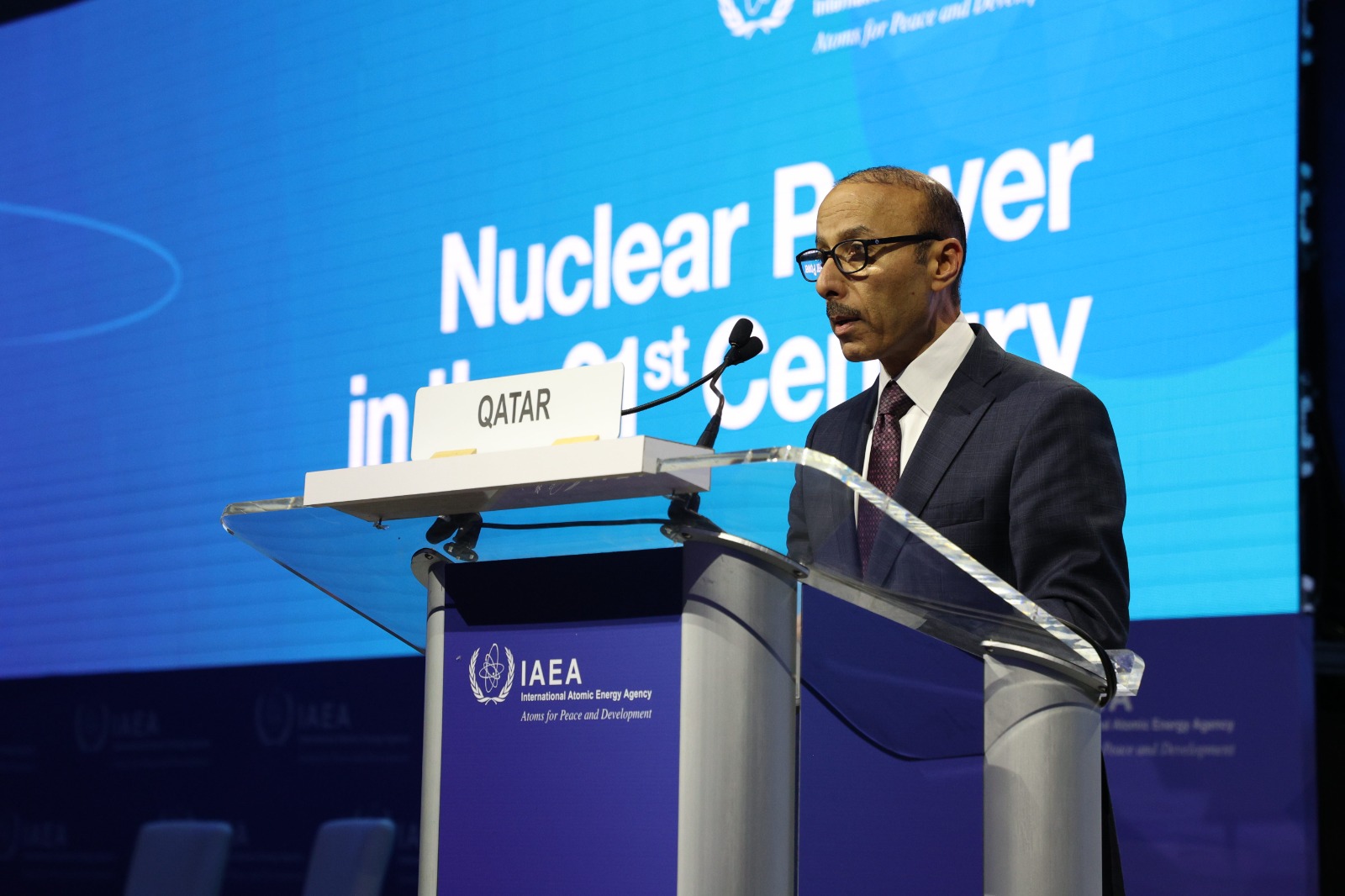Qatar Calls for Non-use of Energy as Weapon in Conflicts

Washington / Media & Communication Dept. / October 27
The State of Qatar has called for the halt of banning the passage of energy or the prevention of its export or import in stages of political crises, and for not using it as a weapon in conflicts.
This came in the statement of the State of Qatar delivered by HE the Permanent Representative of the State of Qatar to the International Atomic Energy Agency (IAEA) Sultan bin Salmeen Al Mansouri before the International Ministerial Conference on Nuclear Power in the 21st Century, currently underway in Washington.
HE Al-Mansouri explained that the world is facing an unprecedented energy crisis today due to the current conflict between Russia and Ukraine, as most of countries are facing difficulties in providing energy, which has led to an increase in the prices of goods and services and a significant increase in inflation rates.
He said that the State of Qatar is convinced that the adoption of a mix of energy sources contributes effectively to ensuring sustainable development and achieving security of energy supplies for peoples, and sees as well that nuclear energy, as a source which use is growing globally, represents a hope that can constitute a great source of energy when the internationally accredited and accepted elements of nuclear safety and security are taken into account.
In his statement, the permanent representative indicated that nuclear energy remains, for the foreseeable future at least, the most capable option to respond to the escalation of alternative energy sources, but in return, the expansion of the use of nuclear energy must be carefully calculated because the risks resulting from error or lack of safety procedures or not taking into account the exceptional cases caused by natural disasters or terrorist acts, will have catastrophic consequences.
He added that these real risks necessitate strengthening international and regional cooperation at all stages of building and operating nuclear power reactors, striving to achieve universality of all treaties and agreements on the peaceful use of nuclear energy, giving priority to strengthening the role of the International Atomic Energy Agency and providing it with the necessary resources to provide the international community with complete and reliable safeguards of safety procedures in nuclear reactors and to contribute to the development and strengthening of these procedures.
The permanent representative called for the safety procedures in the reactors to be with a high degree of transparency to reassure neighboring countries, stressing the central role of the International Atomic Energy Agency in providing these safeguards and the need for full and comprehensive implementation of the Convention on Nuclear Safety (CNS) and the rest of relevant agreements and treaties.
HE Al Mansouri reviewed the role of the State of Qatar in recent years in international efforts related to addressing climate change, finding innovative solutions for clean and low carbon energy, achieving the goals of the COP26 Climate Summit and accomplishing zero carbon emissions.
In this regard, he announced that the State of Qatar has entered into a partnership with "Rolls-Royce" by investing in the manufacture of Small Modular Reactors (SMR), saying it is hoped that this type of reactor will play an important role in achieving the goals and recommendations of the UN Climate Change Conference in Paris (COP21) and pointed out that on Oct. 18, one of the largest solar power plants in the region with a capacity of 800 megawatts, covering an area of 10 square kilometers and containing 8.1 million solar panels, was opened to provide 10% of the electricity in Qatar at peak times.
He said that the State of Qatar is proposing the carry out of an international awareness campaign, especially in third world countries, in order to introduce power reactors and the security and safety measures in them, spreading a culture of rationalizing energy use, creating a national environment that positively interacts with energy, protecting it, and enhancing its security and safety measures as well as preserving and developing it.
Concluding, the State of Qatar Permanent Representative expressed Qatar's hope that the International Ministerial Conference on Nuclear Energy in the 21st Century would achieve the aspired success by providing a solution to address energy poverty that afflicts more than one billion people of the world's population. (QNA)

